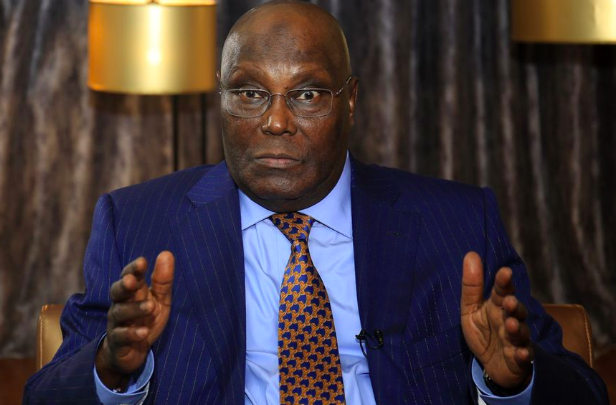
Former Vice President, Atiku Abubakar has advised President Muhammadu Buhari’s administration to reduce the cost of living in order to sustain the country’s economy as the world battles the deadly coronavirus.
It’s no longer news that several countries are shutting down in order to prevent the spread of the virus, resulting in economic difficulties. Oil prices have fallen to $30 per barrel, a development that will really affect the country’s economy as its the major source of revenue.
In a statement sent to POLITICS NIGERIA, Atiku maintained that reducing the pump price of fuel and removing stamp duty fees on bank accounts will go a long way in ensuring economic sustainability.
“The coronavirus is raging in the world and not just ravaging human beings, it is also affecting economies. Nigeria is not an island onto itself, and we must take measures to protect the economic well being of our nation and people.”
“Every action that can be taken to ease the cost of doing business in Nigeria and reduce the cost of living, while promoting consumer confidence must be implemented.”
He also pleaded with the government to dialogue with employers of labour to endure and not disengage workers.
“As such, I recommend that policies like the Stamp Duty on all types of accounts be temporarily suspended, until such a time as the nation’s economy has turned the tide in the fight against this virulent scourge.”
“Furthermore, as the landing cost of Premium Motor Spirit, also known as petrol, has reduced significantly, it is strongly recommended that the government should not absorb the savings, but should pass it on to the Nigerian people by way of reducing the pump price of PMS to reflect the current prevailing market costs.”
“In addition to these measures, the government is urged to request large scale industrialists and employers of labour not to disengage workers. Definitely, this scourge will affect their production and profitability. However, if they know that the government is behind them and will do all to support them, they are less likely to disengage workers”
